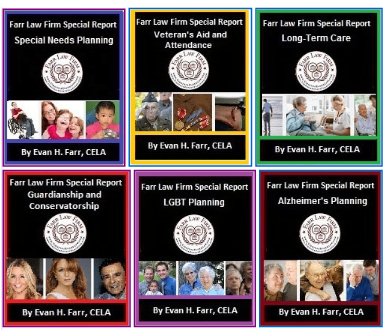Debunking the Myths About Autism
If you cannot view the image below, please read the article on our blog.

Image from Pathfindersforautism.org
Q. We recently found out that my son, Freddy, has been diagnosed with Autism Spectrum Disorder. After accepting the fact that things will be more challenging for him socially and academically (he is also learning disabled), I told my friends and family about the diagnosis. The first thing my mother mentioned was, "maybe he's just quirky," and my sister gave her two-cents stating that a "disproportionate
number of mass murderers are on the spectrum," and that "I better get him therapy right away." My best friend, Rebecca, who I thought would be compassionate, said "maybe he'll outgrow it." Since these are my friends and family, who supposedly care about me and my son, maybe I should take what they're saying with a grain of salt. Based on your experience with special needs families, what do you think?
A. One in every 68 children today is being diagnosed with autism spectrum disorder (ASD), with kids with ASD in the news, on TV shows, and in your child's classroom. ASD is so well known these days that many Americans, without a medical or psychology degree, fancy themselves as experts on the subject.
But, don't despair. Much of what many think of as facts, are really only myths. In answering your question, I will take this opportunity to dispel five of the most common myths, including those you had heard from your family and friend.
Please note: ASD is a spectrum disorder, meaning no two people on the spectrum are exactly the same, and many exhibit different characteristics that make them unique.
Myth #1: People with autism lack empathy
In the past, those with ASD were depicted in clinical literature and in the media as "emotionless," and "incapable of compassion," akin to sociopaths. In reality, however, people with ASD are often highly concerned with the feelings of the people around them, sometimes to a paralyzing degree.
Your sister mentioned an often-repeated assertion by media figures, such as MSNBC’s Joe Scarborough, that a disproportionate number of mass murderers are on the spectrum. While it's true that some are, it is also true that many are not.
When it comes to exhibiting empathy, often those with ASD struggle to make sense of social signals, including subtle shifts in facial expression, body language, and tone of voice. For many children on the spectrum, the use of “social stories” – visual representations of interpersonal interactions – can help accelerate the learning process.
Myth #2: Maybe he's just quirky
According to Lorna Wing, a pioneer in the field of childhood developmental disorders who advanced understanding of autism worldwide, every trait that is characteristic of autism is also possessed by non-autistic people (i.e., "neurotypical" people), to varying degrees. Autistic people"self-stimulate"; neurotypical people fidget. Autistic people have “special interests” and “obsessions”; neurotypicals have hobbies and passions. Autistic people have
“sensory sensitivities”; neurotypicals just can’t stand wearing polyester. That means there’s a huge gray area between autism and non-autism.
However, ASD is a disability, and those who are diagnosed with it meet certain criteria, as established by the DSM-V. For those who meet the criteria, ASD is a profound and pervasive disorder that affects nearly all aspects of life, as anyone with a diagnosis (or a loved one who has one) knows.
Myth #3: Autism is an epidemic
In 1970, the estimated prevalence of autism among schoolchildren in the United States was 1 in 10,000. Now it’s one in 68. Although the numbers have gone up dramatically, ASD is not an epidemic.
In reality, the primary contributor to the dramatic spike in ASD in recent decades is the fact that a broad range of children, teenagers, and adults on the spectrum are now able to get diagnosed. Until the 1980s, there was no “autism spectrum” as a diagnostic category. Autism was defined very narrowly, and mistakenly thought of as rare.
In fact, throughout the 1980s, a parent often had to bring their child to 9 or 10 specialists before finally obtaining an autism diagnosis (which many couldn't afford to do). And girls with autism were virtually "non-existent" to those in the psychiatric field until the end of the 20th century.
Myth #4: Children can outgrow ASD
According to the Wall Street Journal, "evidence is growing that some children with autism appear to grow out of their symptoms and recover fully." The article states that clinicians and parents have described patients and loved ones whose autism symptoms seem to disappear completely. However, these individuals haven't been closely studied, making it hard to determine whether they had autism in
the first place or were misdiagnosed. The article points out that possibility of recovery is spurring interest, but more research needs to be done. Please also read our article, "Can Someone Recover from Autism?" for more details.
On this subject, even if children cannot "outgrow ASD," early intervention and therapy are key to treat the symptoms of the disorder.
Myth # 5: Children with autism are either "intellectually disabled" or "savants."
When researchers took a look at the long-standing assumption that children with ASD suffer from intellectual disability or are savants, like Dustin Hoffman's character in the movie "Rain Man," they found it was far from the truth. Like any human being, each person has skills that they are better at than others, but not all are savants. At the other extreme, some kids on the spectrum are harder to test than others, but that doesn't mean they are lacking in intelligence.
Hope these truths provide some clarity for you, and help to dispel the myths that you have heard.
Special Needs Planning
Parents of those with special needs, including ASD, are tasked with planning for their children throughout their lifetimes, as many of them will outlive their parents but might not be able to support themselves and live independently. As a parent or guardian, you want to ensure that your child with special needs will remain financially secure even when you are no longer there to provide support. A Special Needs Trust is a vehicle that provides assets from which a disabled person can maintain his or her quality of life, while still remaining eligible for needs-based programs that will cover basic health and living expenses.
If you have a loved one who will likely need care for life, it’s important to provide legal protections for him or her. The Law Firm of Evan H. Farr, P.C. can guide you through this process. Please call us to make an appointment for a no-cost consultation:
Fairfax Special Needs Law: 703-691-1888
Fredericksburg Special Needs Law: 540-479-1435
Rockville Special Needs Law: 301-519-8041
DC Special Needs Law: 202-587-2797
-----
Critter Corner: New iPhone App Could Transform How We Diagnose Autism

Dear Commander Bun Bun,
I heard somewhere that a new app has been developed by Apple that can be used to diagnose Autism Spectrum Disorder (ASD) using facial expressions. Since you are attuned to what's going on with technology, have you heard anything about this and how it works?
Thanks,
Di Agnosis
----
Dear Di,
The app, Autism & Beyond, is the result of a several-year-long project led by a team of Duke doctors, researchers, and programmers. It's one of several new apps that Apple is making available through its ResearchKit platform today.
Autism & Beyond plays 20-minute videos while using an iPhone or iPad's built-in camera to scan viewers' facial expressions, analyze their reactions, and then indicate if there's a potential risk of autism. It's intended for parents to use with their children, who see videos of lights, sounds, and storytellers.
How it works:
• When the viewer smiles, dots line the video version of his or her face.
• After the app collects enough of those visual patterns, it's able to offer real-time and evidence-based feedback, such as whether a parent should seek out a doctor based on the child's indicators for autism.
• The app was created to provoke the same instinctual responses that a psychologist uses to gauge in a clinic, as she tries to diagnose autistic children.
Duke researchers hope that parents will start using Autism & Beyond to build up a video library of a child's reactions, which could help doctors prioritize the most at-risk children and bring them into the office for in-person diagnosis. However, if parents don't want to have their child's face and features captured on video, they can opt to just record the patterns of dots.
Although autism can be diagnosed in children as young as 18 months, the average age of diagnosis in the United States is more than 4 years old. Delayed diagnoses can stunt a child's intellectual and social development, due to lack of early intervention therapies.
Learn more about Autism and Beyond and view it in iTunes here.
Note: This app does not provide a definitive diagnosis of ASD. If you suspect your child shows symptoms of ASD, be sure to make an appointment with a developmental pediatrician or neurologist.
Hop this is helpful,
Commander Bun Bun
--------
Sign up for our FREE Special Reports and get the answers to your burning questions! Just click on a cover below!

|
| Special Offer |
|
We’re Giving Away My Best-Selling Books – Click Here to Find out Why and to Get Your Free Copies
|
| |
| Find Us |
|
|
| Upcoming Events |
|
Our upcoming Living Trust Plus Seminar: "How to Protect Your Assets from the Expenses of Probate and Long Term Care" is on November 21 or December 12 in Fairfax.
----------
|
Article Reprint Authorization
|
We invite you to reprint our articles to bring helpful content to your readers, with the following guidelines:
-The article is to be printed in its entirety;
-Additions, deletions, or changes in the text, title or illustrations may not be made;
-Credit is given to The Law Firm of Evan H. Farr, P.C., as the original source.
Example:
Source: Reprinted from The Law Firm of Evan H. Farr, P.C. Newsletter (www.FarrLawFirm.com).
|
|
Mailing Address
|
Fairfax:
10640 Main Street
Suite 200
Fairfax, VA 22030
703-691-1888
Fredericksburg:
511 Westwood Office Park
Fredericksburg, VA 22401
540-479-1435
Rockville, MD:
1 Research Court
Suite 450
Rockville MD 20850
301-519-8041
Washington, DC:
1425 K Street, NW
Suite 350
Washington, DC 20005
202-587-2797
|
|











